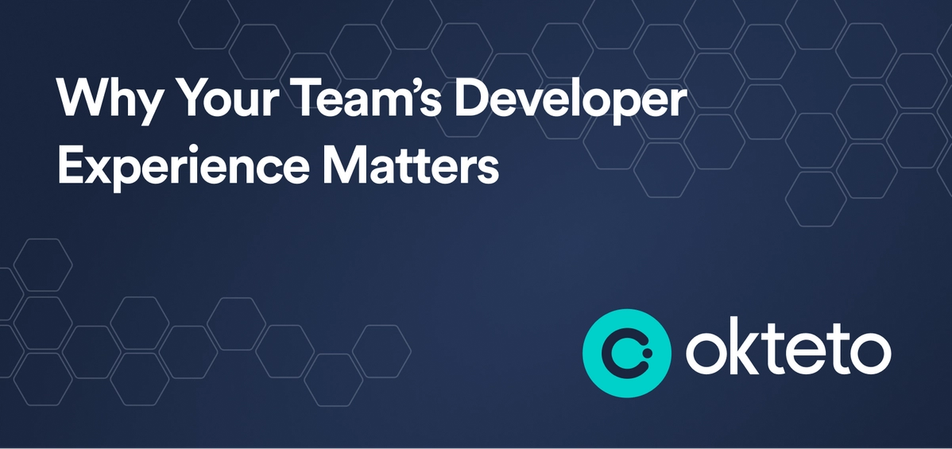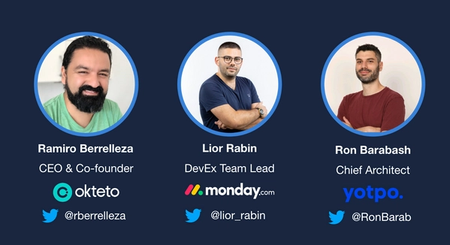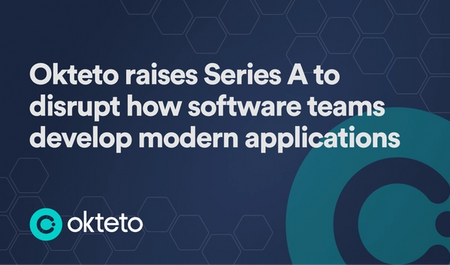Why Your Team’s Developer Experience Matters

Happy developers write better code. Over the last decade, the era of cloud and mobile applications brought about tools like Docker, platforms like Kubernetes, and architectural patterns like microservices to help development and production teams deliver what we know today as modern applications. But somewhere along the way, we seem to have forgotten about the development side of the equation and overlooked the increased gap between development and production. And that has had a huge negative impact on the developer experience!
What Exactly Is Developer Experience?
Just like User Experience (UX) relates to how users feel when interacting with a product, Developer Experience (DX or DevEx) describes how developers feel when using a tool as part of their job. Think of your favorite code editor; the happy feelings you associate with it are part of your DevEx with that tool.
With so many emerging tools and technologies, DevEx has become more relevant than ever. After all, if you want to keep the developers on your team happy and productive, you must invest in solutions that enable them to work without friction. The processes you set up for your team and the tools you choose end up defining the development experience for your team. So what’s wrong with our current approaches?
The Sad State of DevEx Today
Today, the state of development is slow, lengthy, and increasingly complex. It’s costing development teams hours of tedious work and lost productivity. Teams remain hindered by the limitations of their local machines that can no longer support the resources it takes to build distributed microservice applications and the lack of intuitive task automation to deal with the gap. To move into deployment, development teams are dealing with a confusing mixture of CI/CD tools, repos, security, and performance test environments. Developers have to work in unrealistic environments which are nothing like production and end up wasting several hours trying to replicate the production setup locally, trying to catch bugs that show up too late in the software delivery cycle.
We, as an industry, have always agreed that the dev environment should be as close to production as possible. But Kubernetes and the cloud shook up the landscape significantly, and we didn’t bother putting in efforts to bridge the now-increased gap between dev and prod. This led to frustrated developers who now found themselves burdened by additional responsibilities.
Simply put, cloud-native applications demand a cloud-based development platform approach.
Closing the Gap
We’ve seen cloud dev environments contribute significantly to an improved DX because, with them, developers don’t have to waste time on things they don't like doing. They get to focus on what they love: writing code, innovation, and building cool applications. The cognitive load of configuring networking policies, Kubernetes manifests, etc., in order to get their development environments to resemble what’s happening in the production can be overwhelming and distracting, not to mention nearly impossible to perfect in a local environment. Cloud dev environments take away this worry by getting you right to the code-writing phase in a single command. What’s even better is that these environments are ephemeral and sharable, so collaboration across dev, product, and deployment teams is now easier as well.
Big companies like monday.com have reported a huge increase in productivity thanks to the better DevEx cloud dev environments provide:
The productivity increase is huge— developers almost don't need any extra time handling environment setup and can work on what matters, which is the product itself.
Learn from the case study of monday.com and see how Okteto helped them take their developer experience to the next level!


 Ashlynn Pericacho
Ashlynn Pericacho
 Ramiro Berrelleza
Ramiro Berrelleza